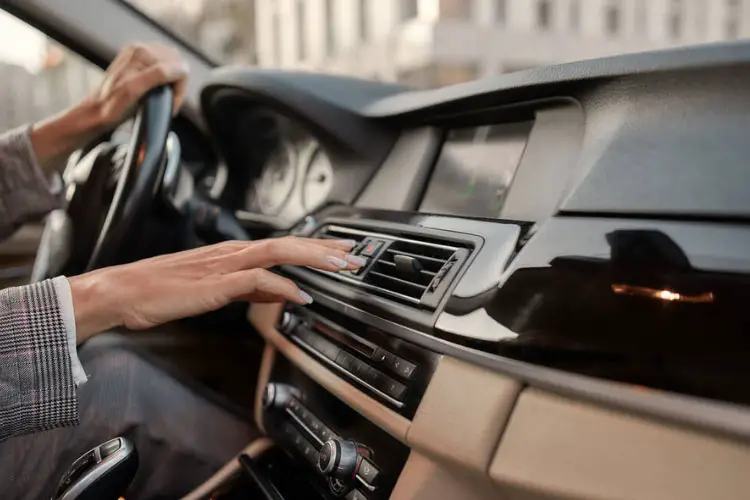We are all aware that an engine overheating while driving is a severe problem that needs a quick solution. The heater in your automobile can be helpful if you’re trying to cool the engine down quickly.
But why does a car overheat unless the heater is on? A faulty water pump, radiator fan, thermostat, or lack of coolant are a few causes of an overheated car engine. The heater in your automobile transfers heat from the engine compartment to the interior, cooling the engine.
Read on to learn the things in detail till the end of the guide.
Why does the Car Overheat Unless the Heater is On?

The table below shows the possible causes of car overheating and the solution in brief.
| Problems | Solution |
| A defective thermostat | Try to tighten its connections, clean the thermostat’s surfaces or replace the thermostat |
| A blocked radiator | Empty the old coolant and add fresh coolant to clean the entire radiator system |
| A faulty cooling system | The cooling system should be examined and fixed by a mechanic |
| A faulty water pump | Any leaks in the water pump can be fixed by adding a good stop leak |
| The radiator fan got damaged | Examine the fan’s fuse, wiring, and power supply and replace the defective components |
| Crack in the head gasket | Take out the damaged head, clean the components of a new head gasket, and install it in your car |
| Insufficient amount of antifreeze | Add additional coolant to your coolant reservoir |
| Lack of oil in car engine | To solve the issue, have your mechanic repair the PCV valve or the worn-out piston rings |
What’s Causing Your Engine To Overheat?
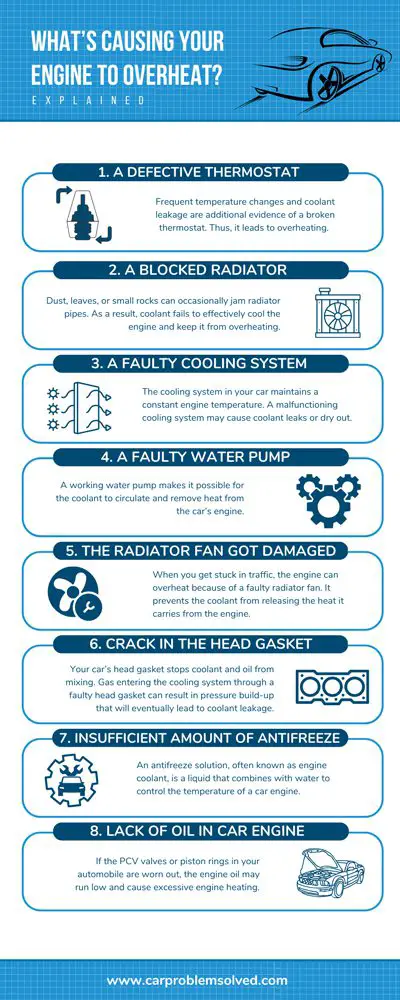
Understanding the various causes of possible engine overheating in your car is crucial. It will allow you to act accordingly at the right time.
1. A defective thermostat
Frequent temperature changes and coolant leakage are additional evidence of a broken thermostat. Thus, it leads to overheating.
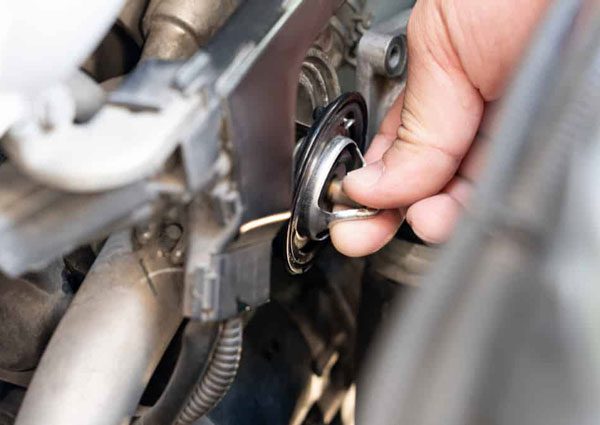
2. A blocked radiator
Dust, leaves, or small rocks can occasionally jam radiator pipes. As a result, coolant fails to effectively cool the engine and keep it from overheating.
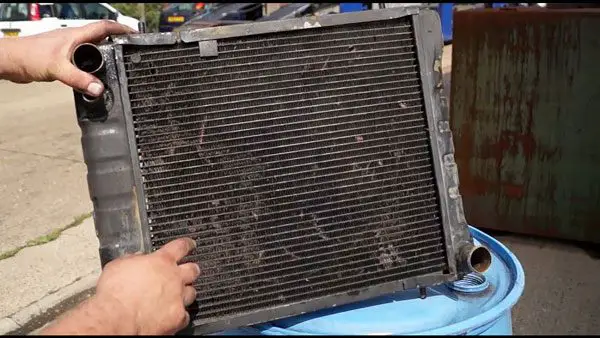
3. A faulty cooling system
The cooling system in your car maintains a constant engine temperature. A malfunctioning cooling system may cause coolant leaks or dry out.
4. A faulty water pump
A working water pump makes it possible for the coolant to circulate and remove heat from the car’s engine. A malfunctioning water pump prevents the coolant from flowing properly, which results in coolant leaks and engine overheating.
5. The radiator fan got damaged
When you get stuck in traffic, the engine can overheat because of a faulty radiator fan. It prevents the coolant from releasing the heat it carries from the engine.
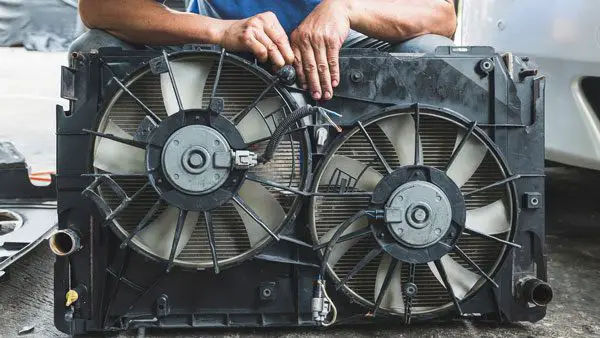
6. Crack in the head gasket
Your car’s head gasket stops coolant and oil from mixing. Gas entering the cooling system through a faulty head gasket can result in pressure build-up that will eventually lead to coolant leakage.
7. Insufficient amount of antifreeze
An antifreeze solution, often known as engine coolant, is a liquid that combines with water to control the temperature of a car engine. If the coolant in your car runs out, the engine will begin to overheat.
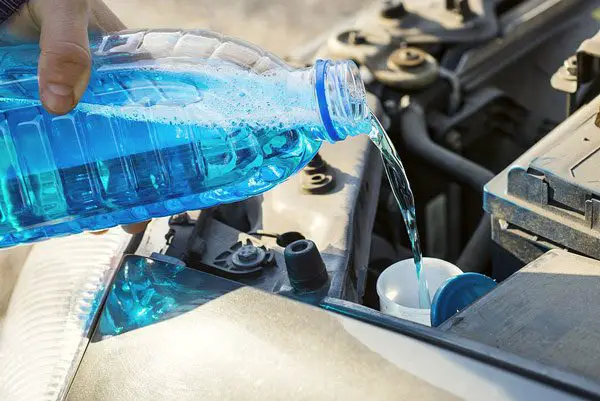
8. Lack of oil in car engine
If the PCV valves or piston rings in your automobile are worn out, the engine oil may run low and cause excessive engine heating.
The Consequences of Driving Overheated Car Engine
Modern automobile engines are highly durable and long-lasting. However, sometimes due to malfunctions, your car engine may overheat while running.
The outcome can be potentially dangerous if you continue to drive an overheated car for a long time.
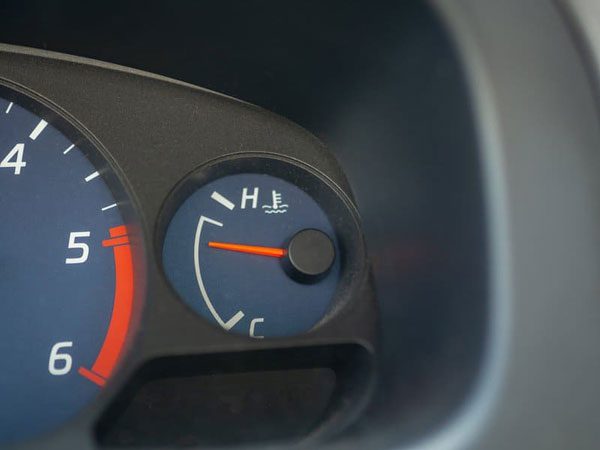
It causes the following problems-
- Your cylinder head will crack– Your cylinder head will crack due to the heat. Your cylinder head breaking will result in slow engine performance and grinding noises.
- Your car’s pipes will break down– When your engine is too hot, the pipes will break down as pressure builds up on them.
- Your car’s hood will blow– A hot enough engine will blast the hood off of your vehicle and send white smoke gushing out from under the hood.
What are The Signs of an Overheated Engine?
If you continue to drive with a hot engine, it will permanently harm your vehicle and could cause accidents. Drivers must recognize the signs of an overheated engine and exercise caution.
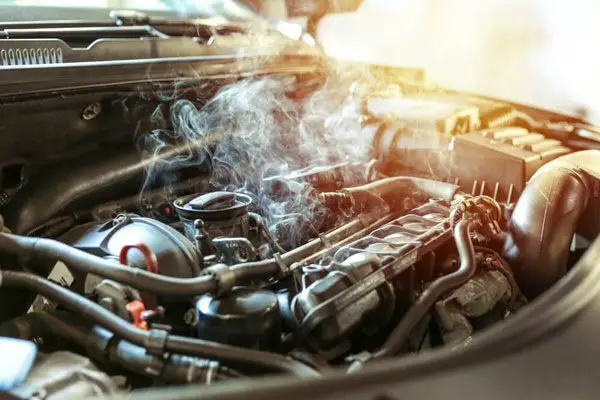
You can look out for the following signs-
- White smoke appears from beneath the hood
- The car will start to make loud, creaking noises
- You’ll notice a burning smell as the oil burns
- A red warning light will flash on your dashboard
- A blazing hot automobile bonnet
- Leakage in the coolant reservoir
Tips to prevent an overheated car engine-
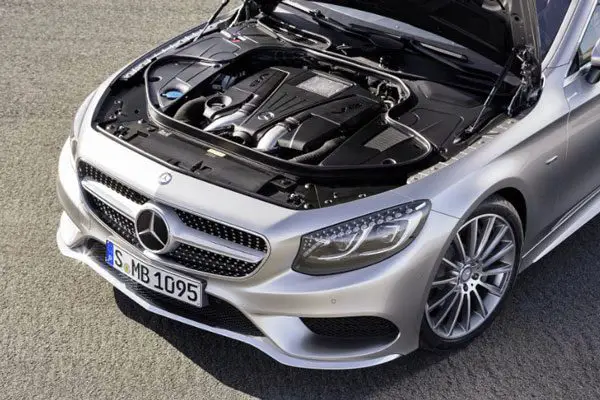
- Keep the amount of coolant in your car at the proper level
- Keep an eye on your thermostat while you’re driving
- Choose the ideal coolant for your vehicle
- On hot days, avoid using the car’s air conditioning excessively
- Replace your vehicle’s old batteries with new ones
- Do not forget to flush the radiator occasionally
- Visit a mechanic regularly to have the vehicle examined for leaks, blocks, or other damage
5 Ways To Maintain A Good-Running Car Engine-
- It’s crucial to frequently check and replace old engine oil since it keeps the engine’s parts oiled
- Keep the Revolutions Per Minute (RPM) needle below the red line to prevent overheating and damaging your engine
- Running your automobile on reserve fuel would cause your fuel filter to deteriorate more quickly, which could harm the engine
- Look under your car for any leaks. If you discover any leaks, have them fixed right away
- Regularly inspect the thermostat for any problems and get it restored to ensure a steady flow of coolant

Bottom Line
In conclusion, I want to highlight why a car overheats unless the heater is on. It can be due to a damaged head gasket, a broken water pump, a low coolant level, and a defective thermostat.
I hope this post will make you more aware of how risky driving with an overheated engine is. If you still have problems with the engine overheating, I’d suggest having a qualified mechanic check out your vehicle.
